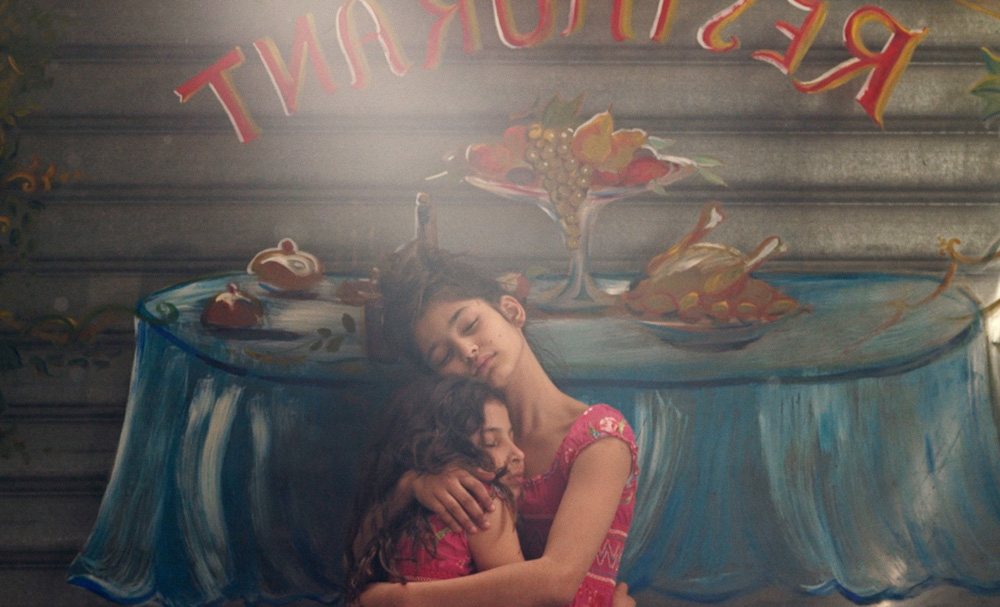In “You Resemble Me,” it is assumed by Hasna’s mother that her nine-year-old daughter has stolen the money to buy her seven-year-old sister Mariam a dress on the occasion of her birthday, not the first and far from the last time Hasna is accused of malfeasance in Dina Amer’s compelling drama. The charge passes with the same lightning speed it’s made, with Amina musing that the dress could fetch a pretty penny back in their ancestral home of Morocco, never mind how happy it makes Mariam, and when all Amina can think of is recall how much pain she endured in birthing the child on her special day, unable to be admitted into a hospital with a husband missing in action then as he is now, Hasna whisks away her sister to take to the streets of Paris, figuring it could be no less toxic than being inside the modest flat.
Amer doesn’t linger on misery for long in “You Resemble Me,” in spite of how much Hasna has to endure, taking hardship in stride as it wears on her, or rather she wears it quite literally when the director has her lead, played primarily in her prepubescent years by Lorenza Grimaudo and later in her twenties by Mouna Soualem, occasionally change in appearance. At first, the clever conceit is a sign of her tenuous grasp on an identity of her own as she loses practically everything in her life when she’s forced to let go of Mariam upon being taken into social services and the two are redistributed to separate families. However, being stripped of everything she holds dear, Hasna is increasingly radicalized as she gets older, inclined to follow the example of Hamid, a cousin she sees on television accused of being a terrorist, and her changing face becomes a window into a woman caught between cultures, having to code switch as she struggles with what she really believes.
The effect of Hasna’s alternating visage is simple and affecting, though sometimes crudely deployed, a tradeoff that could also describe Amer’s deft handling of depicting the trauma that’s shaped her enigmatic heroine, mercifully sparing the audience of upsetting imagery they have likely seen before, but inevitably reducing them to pointed inferences carries the risk of feeling abrupt and minimized. Still, this is a small price to pay for the truly exciting way Amer and co-writer Omar Mullick (also the film’s cinematographer) lay out the series of dehumanizing events that gradually form Hasna’s worldview, an abstract collection of larger societal issues and personal transformation that feel like gasoline and matches in the filmmakers’ hands.
The nonfiction roots of both the production itself and those involved — from Mullick who co-directed “These Birds Walk” to both Amer and her producer (and brother) Karim Amer, who produced “The Square,” probably should be acknowledged in the deep sense of authenticity the film has, extrapolating the story from the headline of a real woman identified as a suicide bomber, only for it to ultimately be debunked and Amer learning more through interviews with her family. But the performances that the director elicits, particularly from the youngest members of the cast, and its novel narrative shortcuts – beyond the facial transitions, it’s quite splendid how Amer finds the cinema in Hasna’s online communication with Hamid, their eyes lit up in only the glow of a computer screen – are the mark of someone gifted at getting truth out of pure invention. In piecing together the disparate elements that can comprise a person’s belief system, Amer’s blending of filmmaking modes and skills isn’t only impressive but apt and while “You Resemble Me” doesn’t look like anything else out there, it’s obviously the product of a strong vision.
“You Resemble Me” will screen at the Giornate Degli Autori on September 11th at 5 pm at the Sala Perla.




